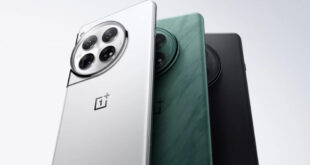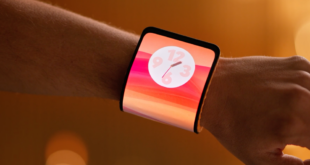Ever since I wrote about the Midwest last year I’ve been keeping my eyes on Columbus. I decided to hold a small pitch-off to meet some of the startups I saw last time I had driven through. The pitch-off was a success and a company called Wyzzer took first place and the quirky Hopper Carts came in second. But what I really came away with was a new respect for Columbus as a startup hub.
You see, I grew up in Columbus and I wanted to see how much it’s changed.
And it has changed. A lot.
On the aggregate a city like Columbus is the model for the future. There is manufacturing, farming, retail, brewing, and ecommerce all in a few square miles. The people are ready to expand and learn and there are plenty of smart folks who are willing to leave high-priced real estate in New York and San Francisco to get a house with a back yard down the street from a beer garden in one of the city’s urban enclaves. I asked around and heard that things are getting even better. Here are a few points I discovered during my visit.
All eyes are on Columbus. And they can’t fail. The city just received a $277 million Smart City grant from the federal government to build out tools and techniques that will define the city of the future. So far it looks like the Mayor Andy Ginther and the city government is dragging its feet but there is hope. While other cities – most notably Pittsburgh – vied for the grant, Columbus got it on the power of private industry and public infrastructure. And now it has four years to deliver. I’ve met a few small startups who are trying to work with the Smart City task force to build out the initiative but there’s little promising thus far.
That said, it’s great Columbus got the nod. There is a lot of promise here as long as government gets into gear and starts working with local entrepreneurs and, most important, this grant can help a thousand startups blossom. It’s a win-win for the government and the city. It just can’t be squandered.
Further, the quality of life is about to hipsterize. In comparison to cosmopolitan Chicago and small, cool towns like Raleigh, Columbus is still a mixture of malls and suburbs. That’s swiftly changing. I lived in Columbus until college and I saw the rough and ready bars of the Campus and Short North District slowly wink out one by one. Then, when I began returning in the 2000s, I saw entire swathes of urban business turn into a sterile sprawl. In short, between 1993 and 2008 or so Columbus got boring.
That’s swiftly changing. The Short North District is a booming pleasure dome dedicated to deep fried pickles and great drinks. Upstarts like Hot Chicken Takeover and carts like PutItInYourFace are replacing the T.G.I. Fridays and Applebees. Microbrews have rousted Coors and Bud. Columbus, like so many other cities, has become comfortable, artisanal, and pleasant. But, because that process is just beginning, there’s still time to get in on the ground floor. There is plenty of room to grow. While many of the rich suburbs are hopeless as magnets for art and commerce the are still places in the city that have plenty of promise. As I wrote last week the city has plenty of rotting malls it can easily turn into unique shopping and eating experiences.
One con? The Columbus ecosystem is small. Columbus has a population of 835,957 with a regular influx of students that leaves over the summer. It’s long been known as a collector of corporate offices – Chase is here as is Nationwide and the Limited. It has never been an “entrepreneurial town” per se and instead depending on the steady flow of students from the halls of OSU to the cubicles of the corporates. That’s changing.
The ecosystem, however, is as nascent as other similarly-sized cities. A few things have been tried but few of the accelerators are able to keep successful entrepreneurs rooted to the city, an important aspect of ecosystem building. I’d like to see more of that over time and I’m sure that slowly but surely we can see some folks settling down to enjoy some Jenni’s and Donato’s with the natives.
Columbus startups need seed badly. There are a few VCs in the area – Rev1, Drive, and Loud Capital are names you hear often – but like most smaller markets the drive to fund smaller startups in negligible. Loud, a startup itself, is the closest to an on-the-ground seed group while Drive is looking for comfortable later stage investments. Accelerators like Fintech71 see the value of seed in specific markets but they’re finding deal-flow difficult. Therefore both investors and startups in the city are usually stuck – a situation is extremely common in cities like Columbus.
One answer to this problem is to activate the older angels to bet on new things. Whereas the angel network in places like Boulder and Denver are well-established and risk tolerant, the same can’t be said of the Columbus check-writers. However Loud has exhibited some success in talking to doctors and other younger professionals who want to experience entrepreneurship but are too busy saving lives to learn Django. The resulting network the Loud team has built allows them to spin up funding quickly when they find something interesting.
Further, the token sale prospects of many small startups are just as valid in cities like Columbus as they are in the Valley or Berlin. I expect many upstart VCs to feel the pinch of founders who no longer want to play their long game.
I asked people why they came to Columbus. Many had the same answer: the talent, the house prices, the quality of life. Shaul Weisband, co-founder of Jifiti, moved to Columbus from Israel to be closer to US retail. His company allows people to send gifts via ecommerce. He’s glad he made the move.
“I’m seventeen minutes from my house to my airport gate,” he said. He also has ready access to local talent and contacts and he and his growing family have more room. He just misses the hummus.
“But I just make my own,” he said.
Featured Image: Walter Bibikow/Getty Images
 #Bizwhiznetwork.com Innovation ΛI |Technology News
#Bizwhiznetwork.com Innovation ΛI |Technology News



